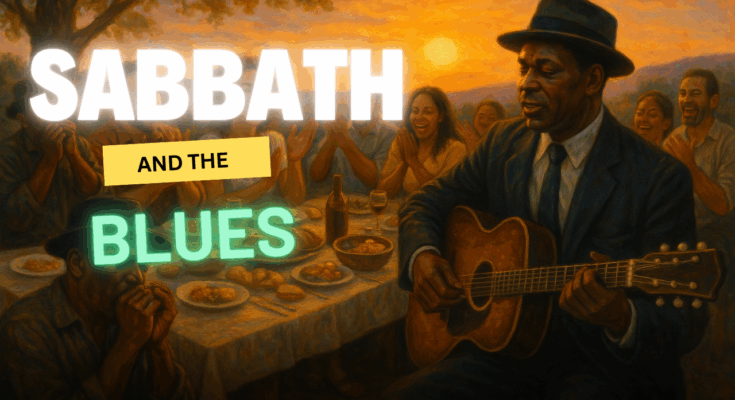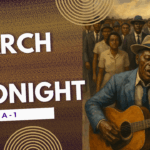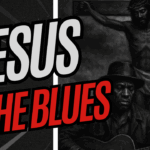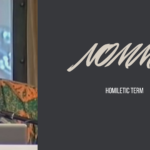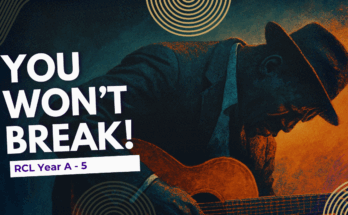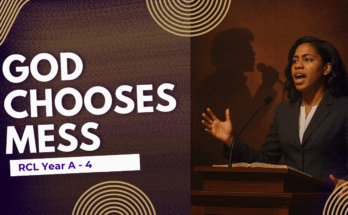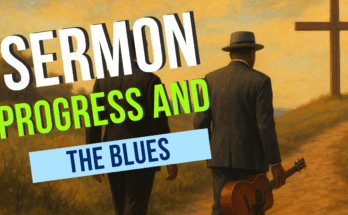As an Amazon Associate I earn from qualifying purchases.
When I entered Vanderbilt Divinity School, a place outside my denomination, I carried a question with me: What happens when the theology I was raised in collides with the theology I was learning?
As a Seventh-day Sabbatarian, the Sabbath was not optional background. It was rhythm, it was structure, it was life. The Sabbath taught me how to breathe when the world demanded bricks without straw. It taught me how to protest without shouting, how to hope without pretending, and how to rejoice without denying pain.
I think of James A. Forbes in The Holy Spirit and Preaching. He felt called to carry his denomination’s Spirit-centered emphasis into the broader church. I feel the same with Sabbath. I stand in communities not shaped by Sabbatarian practice, and I bring this gift with me—not only as a weekly discipline, but as a theological vision.
And here the blues helps me say it. Because the blues, like the Sabbath, knows something about groaning and rejoicing in the same breath. Abraham Joshua Heschel once called the Sabbath a cathedral in time—a sanctuary not built of brick and mortar, but of rhythm and rest. He said the Sabbath teaches us to live “as if all is done.” The blues says something similar: sometimes you sing like deliverance has already come, even if chains still rattle at your feet.
Sabbath as Communal Celebration — The Groove
In the blues, nothing matters more than the groove. The soloist might bend notes in every direction, but the groove holds the whole band together. It is communal by nature.
So it is with Sabbath. Exodus insists that sons and daughters, servants and strangers, even the animals, must rest (Exodus 20:10). Leviticus calls it a “holy convocation” (Leviticus 23:3)—a gathering, not a private retreat. Sabbath is not just me and God napping. It is us and God together, swaying in the same rhythm.
Think of a summer cookout where Frankie Beverly and Maze’s Before I Let Go comes through the speakers. People laugh, clap, and move in sync. That’s the feel of Sabbath—God’s weekly groove, where the whole community finds its pocket.
And yet that groove also tells the truth. Deuteronomy commands Sabbath by reminding Israel, you were slaves in Egypt (Deuteronomy 5:15). In other words, Pharaoh lied when he told you your worth was your work. The groove breaks that lie. It remembers creation’s goodness and liberation’s mercy (Exodus 20:11). The Sabbath says every week: “We made it through. God brought us out. We are more than what Pharaoh demanded.”
Sabbath as Protest — The Blue Note
Every blues player knows the power of the blue note—that bent tone between major and minor. It doesn’t resolve cleanly. It holds tension. That’s why the blues can sound both mournful and hopeful at once.
The Sabbath is that kind of note. The world runs smooth in empire’s key: produce, consume, repeat. But Sabbath bends the scale. It interrupts the music of endless labor with holy dissonance. It says: “No. Time itself belongs to God.”
In that pause is room for lament. Paul says creation groans like a woman in labor (Romans 8:22). On Sabbath, we groan too—refusing to hide behind busyness, daring to feel the ache. And in that groan is also resistance. Isaiah links true worship to loosening chains of injustice (Isaiah 58). Every time the people rest, they are declaring, “Pharaoh does not own me.”
When Billie Holiday sang Strange Fruit, she bent America’s ear until it could no longer pretend not to see. When Curtis Mayfield sang People Get Ready, he bent time itself toward freedom. Sabbath does the same. It’s the blue note in the calendar, a holy dissonance that refuses to let the empire play a smooth, happy lie.
Sabbath as an Attack on the Status Quo
The Sabbath is not sweet sentiment; it is holy disruption.
Pharaoh demanded unending bricks. Wall Street demands 24/7 productivity. Silicon Valley demands constant connection. The Sabbath says: “Stop.” Every seventh day is a boycott of Pharaoh’s economy. No buying, no selling, no working. The world calls it inefficiency. God calls it freedom.
And in that boycott comes equality. On the Sabbath, there are no big I’s and little you’s. Scripture makes it plain: children, servants, immigrants, even the livestock rest (Exodus 20:10). Sabbath is God’s rehearsal of justice, one day each week when the poor are honored and the laborer is free.
This is why Sabbath is dangerous. It teaches us to practice equality in time. It trains us to resist any system that demands endless output. Like the blues, it exposes the cracks in the world’s story and forces us to live another one.
Sabbath as Eschatological Jam Session — The Improvisation
Every jam session is a kind of eschatology. The band plays joy as if the future has already arrived, even while bills pile up and fields stay dry.
The Sabbath is a jam session in time. Hebrews says, “There remains a rest for the people of God” (Hebrews 4). Revelation promises a day when every tear will be wiped away (Revelation 21). Each Sabbath is a rehearsal for that final concert. We play today as if the encore is already guaranteed.
That’s why the blues always lifts, even when it moans. Sam Cooke’s A Change Is Gonna Come groans with injustice but still climbs toward hope. Mahalia Jackson’s I’m Going to Live the Life I Sing About doesn’t wait for heaven; it enacts the kingdom now. In the same way, Sabbath is God’s weekly rise. It is resurrection time built into the very rhythm of creation.
The Sabbath on the Pentatonic Blues Preaching Scale
When you run Sabbath through the Pentatonic Blues Preaching Scale, every note sounds clear:
Truth-Telling: Sabbath unmasks Pharaoh’s lie that we are only what we produce (Deuteronomy 5:15).
Lament: Sabbath creates space to sigh with creation and grieve without shame (Romans 8:22).
Memory: Sabbath recalls creation’s goodness and liberation’s mercy (Exodus 20:11; Deuteronomy 5:15).
Resistance: Sabbath refuses empire’s grind and practices equality (Isaiah 58; Nehemiah 13).
Hope and The Rise: Sabbath lives the future now, a weekly resurrection in advance of the last one (Hebrews 4:9; Revelation 21:4).
Conclusion
The Sabbath is not a nap. It is not an individual retreat. It is the groove of God’s time, a holy convocation where all God’s people step into the same rhythm. It is the blue note in history, bending empire’s melody until it cannot hide its cracks. It is a boycott of Pharaoh’s status quo, a weekly protest that says worth is not for sale. It is a jam session of eternity, an improvisation that plays resurrection before the last day arrives.
To practice Sabbath is to live blues theology in holy time. It is to rest as though everything is already done. It is to sing freedom as though it has already arrived. Sabbath is God’s weekly rise.
Amazon and the Amazon logo are trademarks of Amazon.com, Inc, or its affiliates.

